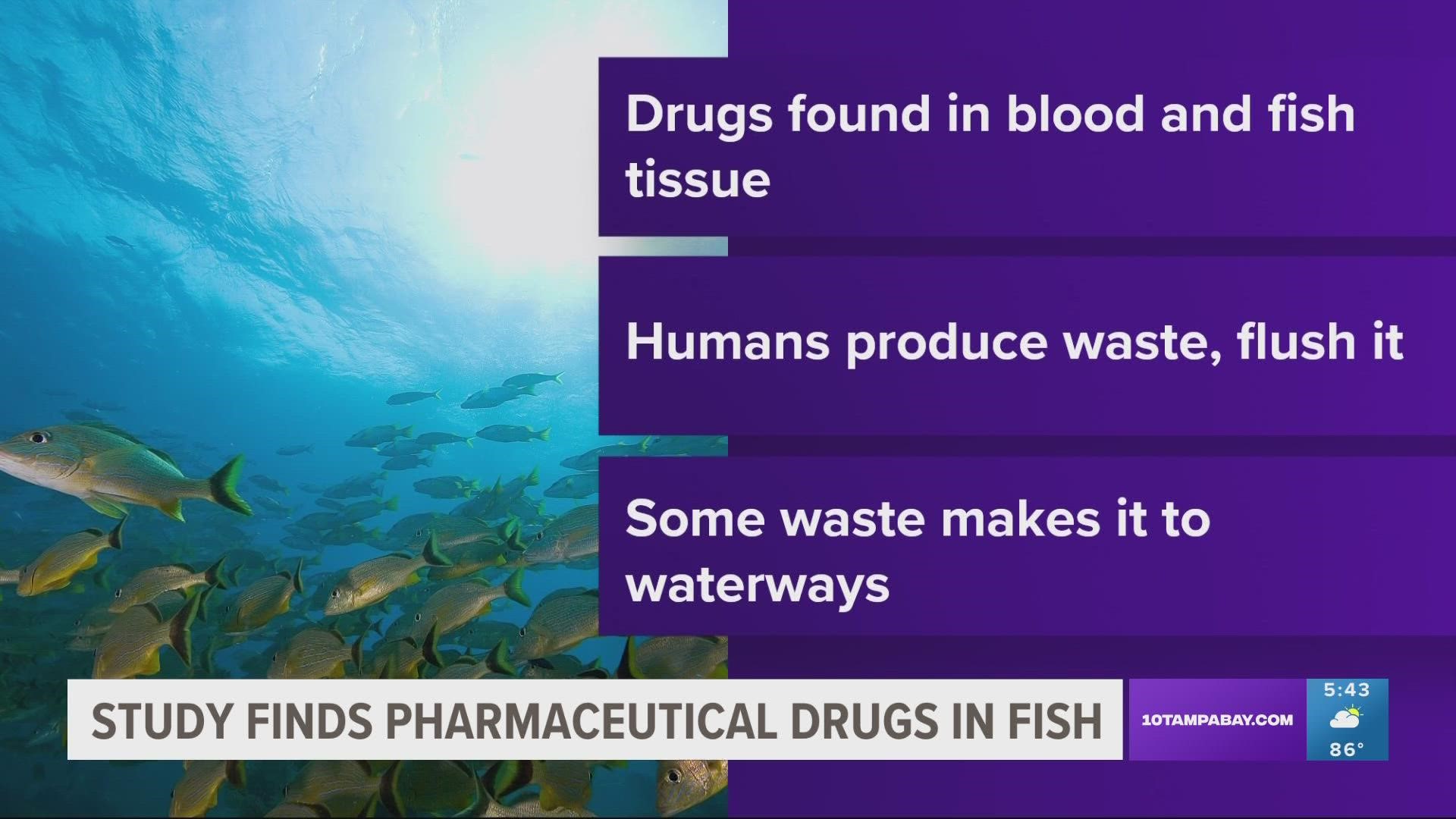MIAMI — A significant amount of drugs meant for human use have been found in Florida's waterways, potentially ending up in the food we eat.
Florida International University and Bonefish & Tarpon Trust earlier this year announced the results of a three-year study, finding that a sample of 93 bonefish in South Florida each contained an average of seven pharmaceutical contaminants. The fish were collected in saltwater areas of Biscayne Bay near Miami and the Florida Keys.
One fish, researchers say, had 17 different types of drugs in its system, including blood pressure medication, antidepressants, prostate treatment medications, antibiotics and pain relievers. Other noted drugs in researchers' findings include heart medications, antifungal medication and opioids.
"These findings are truly alarming," said Jennifer Rehage, the lead researcher and a coastal and fish ecologist and associate professor at the FIU Institute of Environment, in a statement. "Pharmaceuticals are an invisible threat, unlike algal blooms or turbid waters.
"Yet these results tell us that they are a formidable threat to our fisheries, and highlight the pressing need to address our longstanding wastewater infrastructure issues."
Crabs, shrimp and other fish — animals that eat bonefish — also were found to have drugs in their systems. These findings pose a significant threat to the state's flats fishery, which supports more than 88,500 jobs and has an annual economic impact of $9.2 billion, said Jim McDuffie, the president and CEO of Bonefish & Tarpon Trust.
Pharmaceuticals in area waterways and the drinking supply have been a major concern for years, according to the U.S. Geological Service. Drugs largely pass through the body unchanged and go down the toilet as waste, but sewage treatment plants cannot separate out the pharmaceuticals. That water, since treated into another product, then ends up as fertilizer or empties into larger bodies of water.
The FIU and Bonefish & Tarpon Trust researchers say the drugs still remain active at low doses and can affect fish feeding, activity, sociability and migratory behavior.
"These troubling findings underscore the urgent need for Florida to expand and modernize wastewater treatment facilities and sewage infrastructure statewide," said McDuffie, crediting Gov. Ron DeSantis for putting the state "on the right path" with initiatives to improve the state's water quality. Last year, the governor announced $481 million for water quality improvements statewide.
"Now we must expedite those efforts, increase investment over the long term, and pursue innovative solutions," McDuffie continued. "We must accelerate septic to sewer conversion, and in those places where sewage is not available, require the use of advanced septic technology.
"The health of our citizens and the coastal resources that support Florida’s economy depend on it."

